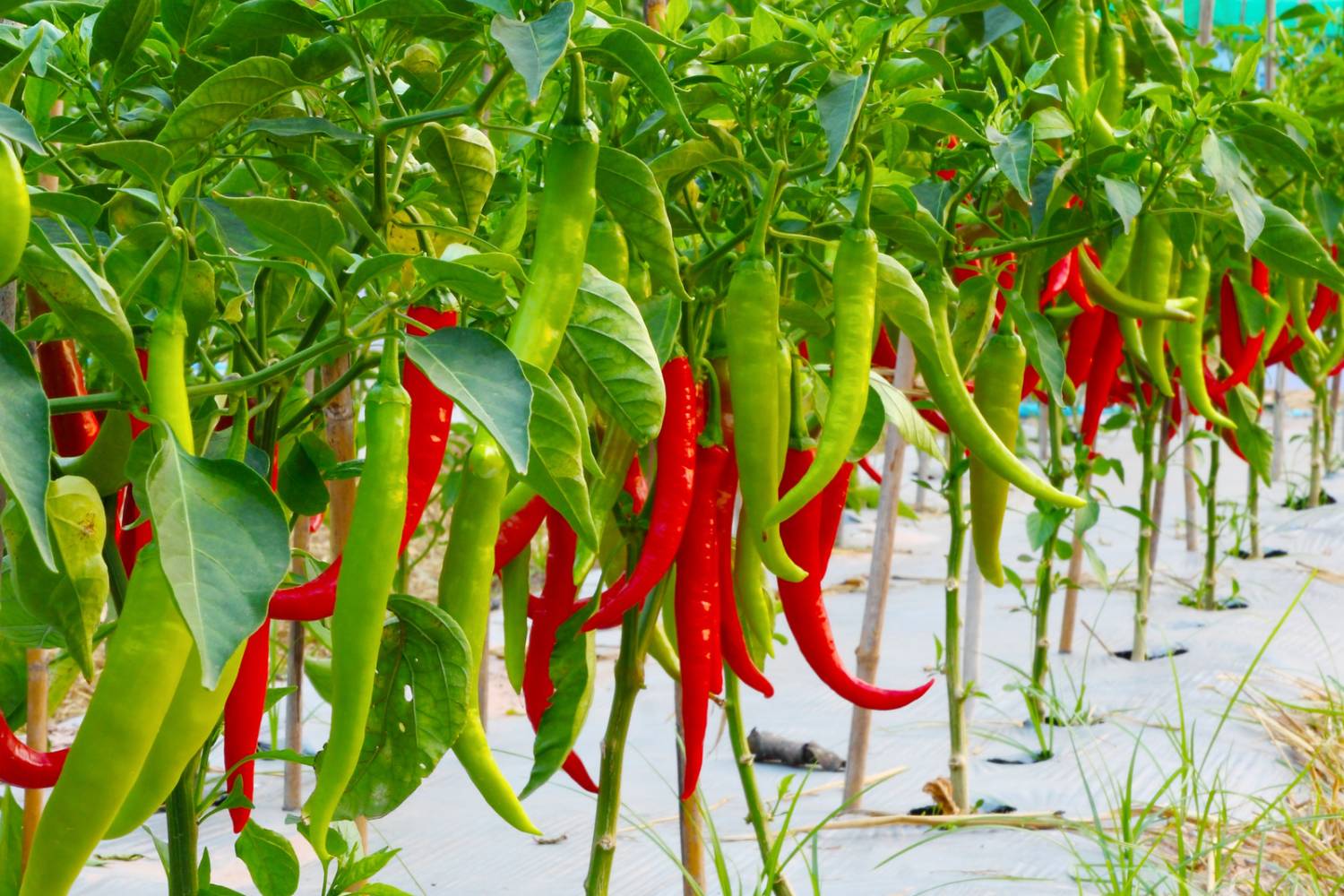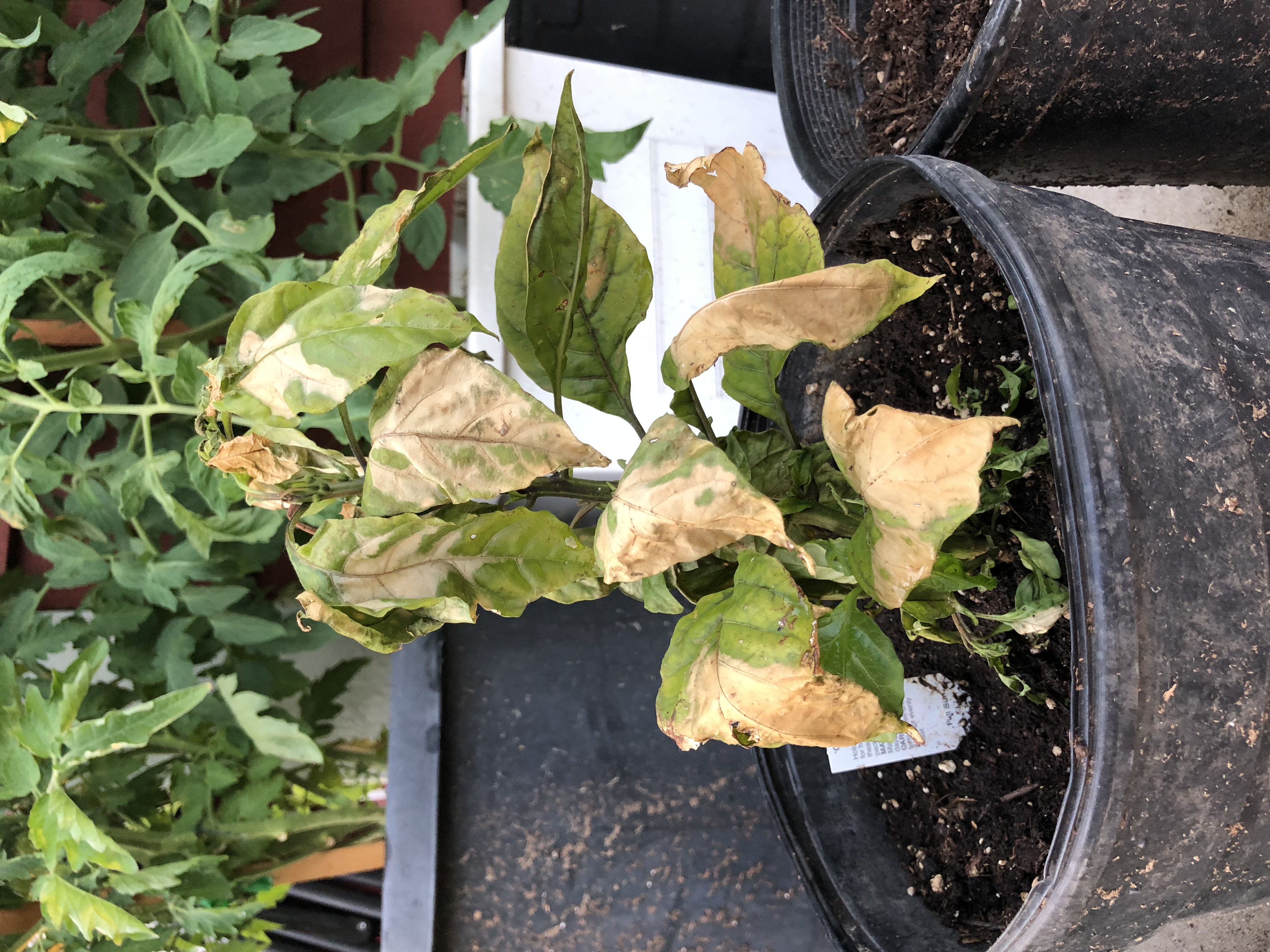Best Fertilizers for Peppers: Increase Development and Taste Naturally
Best Fertilizers for Peppers: Increase Development and Taste Naturally
Blog Article
How Plant Foods Play a Crucial Role in Growing Healthy and Plentiful Pepper Crops
Plant foods function as the foundation of successful pepper growing, providing a calculated technique to nurturing the soil and promoting optimum plant growth. The detailed dancing between essential nutrients and the pepper plants' physical processes emphasizes the critical role that fertilizers play in making sure an abundant harvest. From fueling robust origin growth to boosting condition resistance, the effect of fertilizers is far-reaching in the farming of healthy and balanced and worthwhile pepper crops. Stay tuned to reveal the nuanced methods in which fertilizers add to the growing of pepper plants and the sustainable methods that underpin their effectiveness.
Significance of Nutrient-Rich Fertilizers
The use of nutrient-rich plant foods plays a crucial duty in improving the performance and quality of pepper crops in contemporary farming techniques. Potassium, phosphorus, and nitrogen are primary nutrients that are important for the development and growth of pepper plants.
Insufficient degrees of these nutrients can lead to stunted growth, lowered returns, and sensitivity to conditions (best fertilizers for peppers). Nutrient-rich plant foods supply a targeted remedy to make certain that pepper plants obtain the essential aspects for ideal growth and productivity. In addition, these plant foods aid boost soil fertility gradually, producing a lasting atmosphere for long-lasting pepper growing
Enhancing Plant Growth and Growth
To maximize plant development and development in pepper plants, calculated application of nutrient-rich fertilizers is vital. Fertilizers play an essential duty in improving the overall wellness and efficiency of pepper plants by providing them with essential nutrients that might be lacking in the dirt. Potassium, nitrogen, and phosphorus are main macronutrients required in big amounts by peppers for durable development. Nitrogen help in leafed eco-friendly growth and general plant vigor, phosphorus supports origin development and blossom formation, while potassium adds to disease resistance and fruit high quality.
Along with these macronutrients, micronutrients such as iron, zinc, and magnesium are likewise essential for the proper performance of numerous plant processes. Iron, for example, is necessary for chlorophyll manufacturing, which is crucial for photosynthesis and overall plant growth. Zinc plays a critical role in enzyme activity and hormonal agent synthesis, impacting plant development and growth at a mobile level. Magnesium is vital for the development of chlorophyll and total energy transfer within the plant.
:strip_icc()/BHG-Growing-Peppers-Indoors-EzgaEnB7KML9Ym_plkvuxK-9398f1341d86483083862533ae7622db.jpg)
Boosting Condition Resistance With Fertilizers
By strategically incorporating targeted fertilizers, farmers can bolster the condition resistance of pepper plants, making certain ideal plant health and wellness and productivity. Plant foods consisting of necessary nutrients like phosphorus, nitrogen, and potassium play an important role in reinforcing pepper plants' immune systems, making them extra durable to various conditions.

Optimizing Pepper Yield Via Fertilizing
Utilizing a well balanced fertilization strategy is crucial to achieving optimum pepper return and making sure ideal plant productivity. By supplying peppers with the best nutrients at the appropriate time, farmers can substantially boost their return possibility. Nitrogen, phosphorus, and potassium are necessary elements for pepper development, with nitrogen aiding in fallen leave and stem development, phosphorus supporting origin development and flower development, and potassium advertising overall plant health and wellness.
To make best use of pepper yield, it is critical to conduct soil examinations to determine existing nutrition degrees and identify any shortages that require to be resolved. Based upon these results, farmers can establish a customized fertilizing strategy that meets the certain demands of their pepper crops. Additionally, appropriate fertilizing strategies such as split applications throughout the expanding period can ensure constant vitamins and mineral availability for the plants.

Sustainable Fertilizer Practices for Peppers
In taking into consideration lasting plant food practices for peppers, it is necessary to focus on long-term soil health and environmental stewardship combined with optimizing plant performance. Lasting plant food methods intend to keep or boost dirt fertility while lessening damaging ecological influences. One crucial This Site method is making use of natural fertilizers such as compost, manure, or cover plants, which not just supply necessary nutrients to the peppers yet additionally contribute to dirt framework and microbial task. These natural choices help build natural matter in the soil, enhancing its ability to retain water and nutrients, therefore sustaining long-lasting crop health and strength.
In addition, precision farming methods, such as soil screening and targeted nutrient applications, can help maximize fertilizer use, making certain that peppers get the nutrients they require without excess overflow into waterways. This not just benefits the setting by minimizing pollution yet likewise conserves expenses for farmers by decreasing waste. By embracing lasting plant food techniques, pepper cultivators can safeguard the health and wellness of their crops, dirt, and bordering ecological communities for future generations.
Final Thought
Finally, plant foods are important for growing healthy and abundant pepper crops. best fertilizers for peppers. They supply essential nutrients for plant growth and advancement, increase disease resistance, and maximize yield. By implementing lasting plant food practices, farmers can make sure the lasting health of their pepper crops and add to an extra efficient and environmentally-friendly farming system
The intricate dance between necessary nutrients and the pepper plants' physiological processes emphasizes the critical role that fertilizers play in making sure a bountiful harvest.To optimize plant growth and advancement in pepper plants, critical application of nutrient-rich plant foods is essential. Fertilizers play an important duty in boosting the total wellness and navigate to this website productivity of pepper plants by providing them with important nutrients that may be lacking in the soil.By tactically incorporating targeted fertilizers, click this farmers can strengthen the condition resistance of pepper plants, making sure optimum plant wellness and efficiency. Plant foods consisting of necessary nutrients like nitrogen, phosphorus, and potassium play an important role in strengthening pepper plants' immune systems, making them more resistant to numerous illness.
Report this page